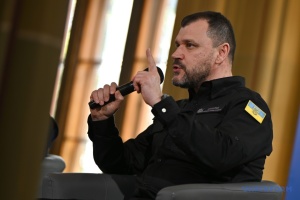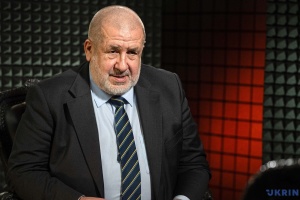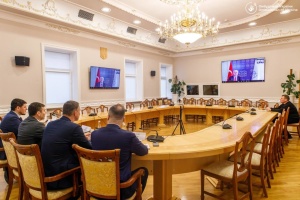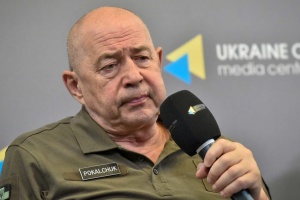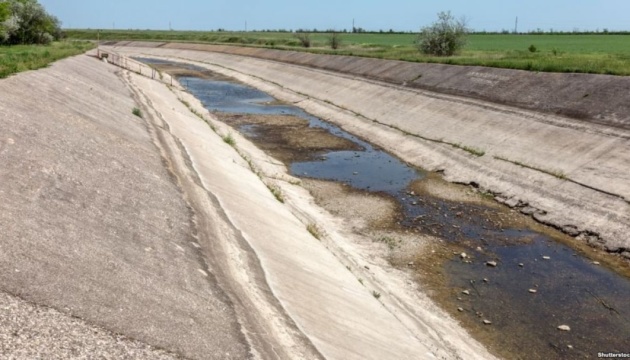
Ecology Ministry dispels Kremlin's myths about North Crimean Canal
Deputy Minister of Ecology and Natural Resources of Ukraine Mykhailo Khorev said on the air of the Dom TV channel that Russian propaganda disseminated false information about the state of the North Crimean Canal, through which fresh water had been supplied to the peninsula from the mainland of Ukraine until 2014.
"One myth is that a barrier installed to prevent water from entering Crimea is in a state of emergency and that the water is about to break it. This is an absolute myth spread by propagandists. Another myth is that part of Kherson region is flooded and swamped due to the blockage of the Canal. One more grand myth is that the water earlier supplied to Crimea now flows into the Black Sea, desalinating it," Khorev said.
There are many myths but the reality is that "water will not be supplied to Crimea as long as it is occupied", the deputy minister noted.
"The North Crimean Canal is an artificial structure, it is not a river, it is not natural. It does not fall under the water convention [Convention on the Protection and Use of Transboundary Watercourses and International Lakes]. We do not violate anything," he explained.
Khorev stressed that local water reserves completely met the needs of the population and the mass hysteria around the lack of water was caused by three main factors.
The first one is the industry that consumes a lot of water resources.
"There are large plants: Titan, Soda, bromine plant. They are located in the area of Armiansk and Krasnoperekopsk. This is the steppe Crimea which lacks natural sources of water. Accordingly, the North Crimean Canal was the main source. So now these plants have production problems," Khorev said.
The second factor is the agricultural sector developed in the steppe Crimea.
"The whole steppe Crimea was covered with irrigation zones, there were irrigation systems, and all crops were cultivated through irrigation. The internal water reserves are absolutely not enough for such purposes," said the deputy minister.
The third factor is the Russian army of many thousands which also needs water for its equipment and troops.
"Finally, there is the army of the aggressor country. It consumes resources. There is a fairly large military bloc. And they are housed in the steppe Crimea – closer to the mainland of Ukraine. So, of course, Ukraine will not supply water for these purposes. Supplying water would mean working for the occupier," he stressed.
According to Khorev, there are enough fresh water resources for the locals.
Until 2014, Ukraine provided 85% of Crimea's fresh water needs through the North Crimean Canal which connects the Dnieper River with the peninsula. After Russia had occupied Crimea, water supplies to Crimea were suspended. Currently, water reserves on the peninsula are replenished from reservoirs and underground sources. According to Crimean environmentalists, regular use of underground sources leads to salinization of soil.
The UN Human Rights Monitoring Mission in Ukraine has repeatedly stated that Russia bears full responsibility for ensuring the water supply on the peninsula in accordance with international law.
According to experts, Russia is unable to provide Crimea with water on its own as it is very expensive. The situation with water supply in occupied Crimea remains critical. Therefore, the "authorities" of the peninsula intend to spend RUB 70 million to search for fresh water in the Sea of Azov. Experts note that the idea of extracting fresh water under the Sea of Azov to provide the peninsula is unfounded for a number of reasons.
оl

